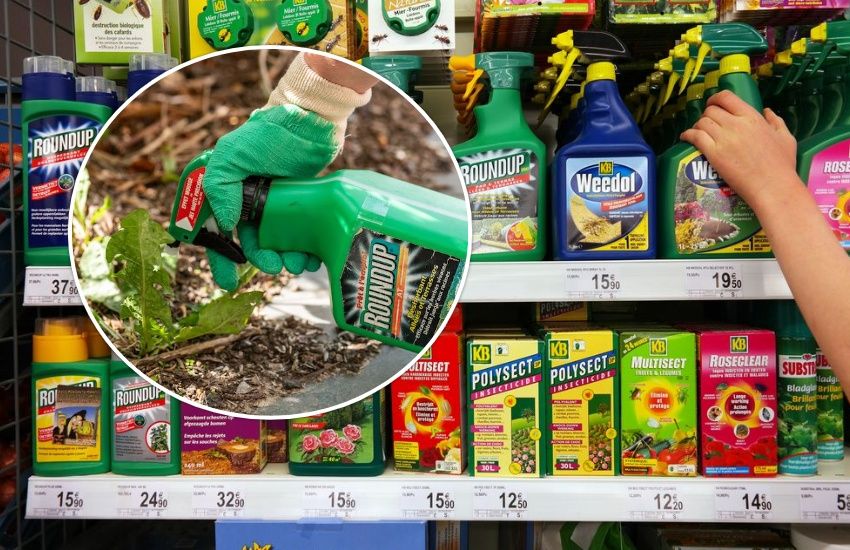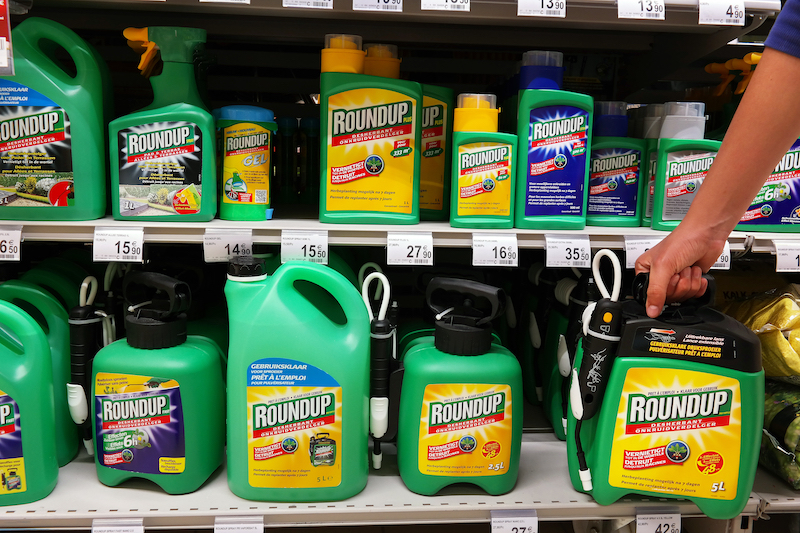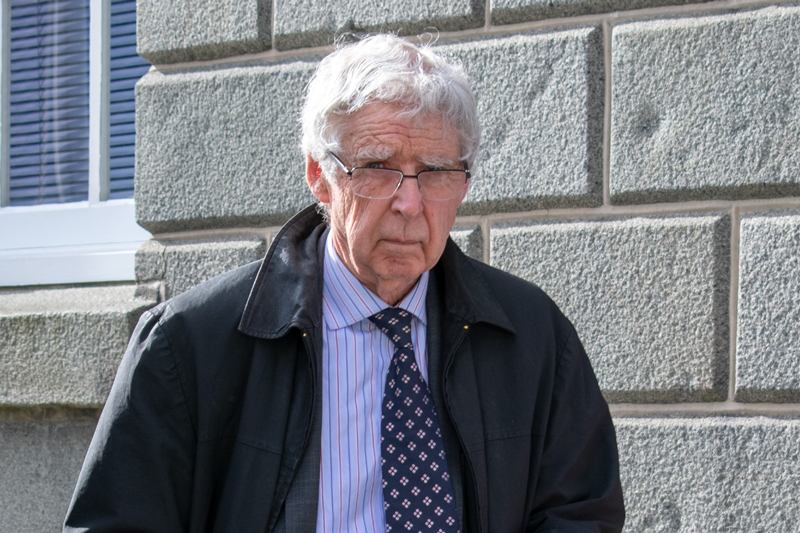


Retail sale of products containing the popular herbicide glyphosate will be banned on 31 October – but it will still be possible for accredited professionals to use it.
Retailers, such as garden centres, will be unable to import and sell products with glyphosate which are intended for amateur use, typically to control weeds on domestic properties.
The domestic use and storage of products will be banned on 31 December.
Only people holding a valid NCTJ certificate of competence and a Level Two application award will be able to use a professional formulation of glyphosate, which differs from pre-mixed bottled domestic products.
The States’ Health & Safety Executive said there was “growing evidence” about the impact of glyphosate on soil, biodiversity, the water supply and human health. It said it was “led by the evidence” and that the changes to be introduced were specific to Guernsey’s circumstances.
Retailers who stock products containing glyphosate for domestic use have been made aware of the ban.

Pictured: It will be an offence for the public to use products containing glyphosate after 31 December this year.
Earlier this year, Guernsey Water revealed "multiple high readings of glyphosate in water courses which increasingly are linked to domestic glyphosate products”. The utility called on the public to reduce use to protect the island's water supply.
Robin Gonard, the States' Chief Health and Safety Officer, told Express yesterday that campaigns to discourage use voluntarily “haven’t really been effective”.
“We are at the stage where the risk to our water supply is too great,” said Mr Gonard.
He said that a new water filtration method – treating drinking water with UV light rather than chlorine – improves water quality and taste but makes it "difficult to treat the water for glyphosate" and is another reason for the island to reduce glyphosate levels significantly.
Pictured: The States' Health & Safety Executive published the decision yesterday.
Mr Gonard said that concerns about glyphosate remaining legal for professional use raised “a fair question” and explained why it was not included in the ban.
“We found that instances of professional use don't tell you where the higher readings are coming from,” said Mr Gonard.
He said this indicates frequent and enthusiastic use of the chemical by amateur domestic users.
He said that householders could be using “four to five times” too much glyphosate on their properties despite the fact that the herbicide “can kill from quite a small amount on the foliage”.
Professional users of glyphosate must hold various accreditations and keep records of where it has been applied and how it has been prepared, which may include diluting the chemical, which is not possible when used domestically.
Mr Gonard added that professional users are easier to protect as they wear specialist equipment, keep records, understand product labelling and how to make sure they are spraying only what is necessary and in appropriate conditions, such as when it is dry and winds are low.

Pictured: Deputy David De Lisle has been an outspoken advocate of banning glyphosate for several years and has prompted debates in the Assembly about the dangers of using the herbicide in the island.
In 2019, Deputy David De Lisle led an unsuccessful requete which proposed banning the use of glyphosate, and earlier this year he said he was preparing to lead another requete on the issue.
Deputy De Lisle told Express yesterday that he was “pleased” with the decision announced by the Health and Safety Executive and with the cooperation of retailers.
He also said there are suggestions that manufacturers of the chemical are now involved in decisions to ban its use.
“It’s coordinated from the [manufacturer] itself… to minimise the number of court cases directly,” said Deputy De Lisle. “This was all written on the requete… we’d seen how the bigger retailers were already minimising the number of involved products.”
Deputy De Lisle claimed that manufacturers of glyphosate have failed to engage with farmers and other stakeholders who use their products.
Mr Gonard said “the evidence was not quite there in terms of local information” in 2019 but that subsequent evidence has led the Health and Safety Executive to a revised conclusion.
He said the European Union now acknowledges that glyphosate is hazardous to the human eye and that there is emerging evidence that it can affect the ability of bees to regulate their temperature.
"Many of the pesticides you find on the shop shelves already don’t contain glyphosate as the industry increasingly moves away from it and so we don’t expect this to have a significant impact for businesses, but we do believe it will help improve water quality and protect our biodiversity," said Mr Gonard.
You can find the list of banned products HERE.
States to debate weedkiller ban
Islanders must "act urgently" to protect water supply
Guernsey Water warns "spray now, pay later" over urgent pesticide problem
Comments
Comments on this story express the views of the commentator only, not Bailiwick Publishing. We are unable to guarantee the accuracy of any of those comments.